Guest Speakers’ Biographies
Amy Tector
Amy Tector is the manager of Online Content and Copyright at Library and Archives Canada. In 2013-14 she was the General Archivist at the Mechanism for International Criminal Tribunals in the Hague, Netherlands. She holds a PhD in literature from the Universite Libre de Bruxelles.
Dean Oliver
Dean F. Oliver (Ph.D., York) is Director, Research at the Canadian Museum of History, Ottawa. He was formerly Assistant Director of York University’s Centre for International and Security Studies and, from 1996-98, a post-doctoral fellow at the Norman Paterson School of International Affairs. He has taught military history, political science, and international security.
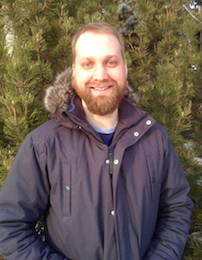
Dustin Grue
“Our speech is filled to overflowing with other people’s words,” writes philosopher of language Mikhail Bakhtin, and with this spirit of linguistic understanding I study representations of speech and thought in genres of criticism. For my doctoral dissertation (Department of English, University of British Columbia) I investigate the skilful interleaving of voices in political and literary criticism, comparing the two with linguistic and computational methods and using a large data-set. I also develop a real-time writing and visualization software called Writer’s Bloc. To help promote this skill of interleaving others’ words in our apprentice scholars, to model the essential overlap between our linguistic consciousnesses, and to extend research capacity in these areas, this software shows to writers writing in a community (for example, a classroom) commonalities in their writing as they write. Writer’s Bloc is developed with support from University of British Columbia’s Teaching and Learning Enhancement Fund and the Public Scholars Initiative, and on which I collaborate with research partners at New York University. My dissertation work has also been supported with a SSHRC Canada Graduate Scholarship and Michael Smith Foreign Study Supplement.

Elizabeth Hodgson
Elizabeth Hodgson is an associate professor in the English Department at the University of British Columbia. A specialist in the English Renaissance, she has published books and articles on gender and spiritual cultures in the literatures of Tudor/Stuart England.
She is also the co-founder and department faculty advisor for the first PhD Co-op program at UBC. She has presented this program at the 2013 Canadian Congress for the Humanities, in Studies in English Literature (Spring 2014), at the 2015 MLA Convention, and at the SSHRC-funded workshop on “Reimagining the Humanities PhD” at McGill University (May 2015). She has consulted on the PhD Co-op program for Emory University and the University of Miami, blogger Jennifer Polk (fromphdtolife.com), the Conference Board of Canada, and MITACS’ national industrial-internship program.
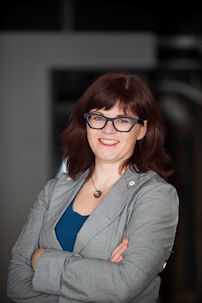
Heather Zwicker
Heather Zwicker is a Professor of English and Interim Dean of FGSR at the University of Alberta, where she manages a $6m grant to support the professional development of graduate students. A cultural studies researcher, Dr Zwicker brings postcolonial and feminist theories to bear on problems such as stereotypes, universities, classrooms, and cities. She is known for her innovation in teaching and administration. She co-founded BRiC, the Banff Research in Culture residency, in which advanced graduate students, postdocs, and junior professors in the humanities work alongside visual artists and curators. Dr Zwicker is the winner of several teaching awards, including the 3M National Teaching Fellowship (2013).
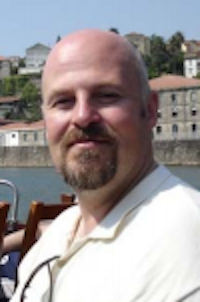
James Cheetham
Associate Professor, Department of Biology, Carleton University
Professor Cheetham received his Ph.D. in Biochemistry from McMaster University, Hamilton, Ontario. He then completed a Medical Research Council of Canada postdoctoral fellowship in the Laboratory of Molecular and Cellular Neuroscience at The Rockefeller University in New York with Dr. Paul Greengard (Nobel Laureate 2000) where he studied signaling in neurons.
Professor Cheetham joined the Biology Department at Carleton University, in Ottawa, Ontario, Canada in 1996. His research focuses on membrane biochemistry and bioinformatics, applied to problems in neurobiology, signal transduction and computational biology. He has published in diverse areas including biochemistry, neuroscience and computer science. He was also involved in creating the Humanities and Biology Program at Carleton University.
Professor Cheetham serves as a reviewer for numerous journals and granting agencies and has been a visiting scientist at the Steacie Institute for Molecular Science (SIMS), at the National Research Council of Canada (NRC), and at the Centre for Cell Biology, University of Aveiro, in Portugal.
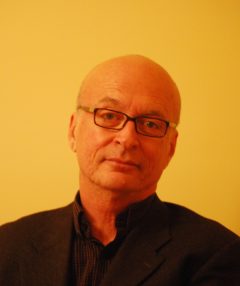
Jay Drydyk
Jay Drydyk is Professor of Philosophy at Carleton University. He led development of Carleton’s interdisciplinary Ph.D. in Ethics and Public Affairs, of which he is currently Program Director. He is a Fellow of the Human Development and Capability Association and Past President of the International Development Ethics Association. He is co-author of Displacement by Development: Ethics, Rights, and Responsibilities (Cambridge 2011) as well as articles on ethics and development, the capabilities approach, social and global justice, human rights, and global ethics. He is co-edited Global Justice, Global Democracy (Fernwood 1997), Rethinking Justice (Rowman Littlefield International 2016), and the Routledge Handbook of Development Ethics (Routledge 2017).

Jean-Pierre Morin
Jean-Pierre Morin completed studies in Canadian History at the University of Ottawa in 1999. Since 2000, he has been the staff historian for the federal department of Aboriginal Affairs and Northern Development Canada. He specializes in the history of Treaties between the Government and Aboriginal people and the history of government policy and administration of AANDC. In recent years, he has worked at developing new interactive digital historical learning tools, web content and digital media. Since 2010, he and his team of historical researchers have been the departmental lead on the ongoing national commemoration initiatives such as the bicentennial of the War of 1812 and the 250th anniversary of the Royal Proclamation of 1763. Since September 2015, Jean-Pierre is the Public Servant-in-Residence at the Department of History of Carleton University.
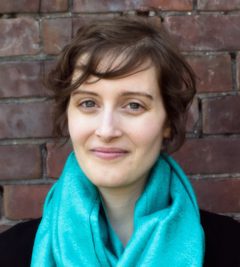
Jennifer Polk
Jennifer Polk works as an academic, career, and life coach. Her clients — graduate students and PhDs — are a diverse group of individuals based all around the world, from Canada, the US, the UK, Europe, Australia, and elsewhere. Jen speaks on campuses and at conferences throughout North America on issues related to graduate education and career outcomes for PhDs, and her writing has appeared in the Globe and Mail, University Affairs, Vitae, and Academic Matters. Find Jen online at FromPhDtoLife.com, which features resources for PhD career changers, and at her award-winning University Affairs blog. Join her twice a month for #withaPhD chat on Twitter, at the monthly Versatile PhD meetup in Toronto, and for Beyond the Professoriate, an annual online conference for PhDs in transition. Jen earned her PhD in history from the University of Toronto in 2012.
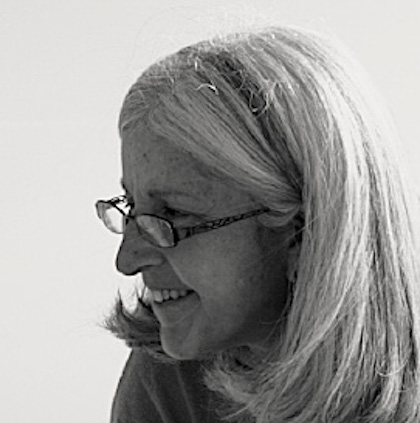
Jill Stoner
Jill Stoner is Professor of Architecture and Director of the Azrieli School of Architecture and Urbanism at Carleton University. She came to this position in July 2015, after 28 years as Professor of Architecture at University of California Berkeley. While servings as Associate Dean of Graduate Studies at Berkeley, she authored a white paper entitled “The Evolving Humanities Phd.” Prof. Stoner is recognized internationally for her contributions to architectural theory. Her first book, Poems for Architects (William Stout Publishers 2001) traces the spatial politics of the 20th century through an anthology of modern poems. Her more recent Toward a Minor Architecture (MIT Press 2012) sets forth a fresh theory for adaptive reuse as architecture’s primary mission in the 21st century.
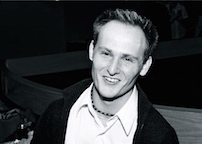
Joshua Lambier
Joshua Lambier is currently a PhD candidate in the Department of English & Writing Studies at Western University. As an active member of the London community, Lambier is also the Founding Director of the Public Humanities at Western and the Artistic Director of the Words Literary and Creative Arts Festival. His dissertation research project, “The Vital Life of Rights in British and European Romanticism,” aims to re-examine the claims of current human rights discourses by returning to their modern genesis in the turbulent political, cultural and literary debates of the Romantic period. He has published essays in the European Romantic Review, Romantic Circles, and Spheres of Action: Speech and Performance in Romantic Culture. Lambier is currently co-editing two volumes of essays on the topic of evolution in Romanticism: Marking Time: Romanticism & Evolution (University of Toronto Press) and Romantic Evolutions (Literature Compass). His doctoral research has been supported by the Pierre Elliott Trudeau Foundation as well as the Social Sciences and Humanities Research Council of Canada (SSHRC). He has been a past winner of The Student Volunteer Award for Community Service in the City of Waterloo as well as a Lifetime Achievement Award given by the Wilfrid Laurier University Students’ Union.
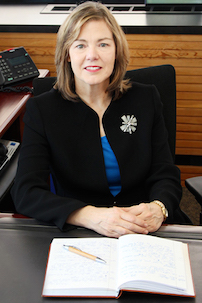
Lesley Cormack
Lesley Cormack is an historian of early modern science, specializing in geography and mathematics is 16th-century England. She received her PhD from the University of Toronto in 1988 and taught at the University of Alberta in the Department of History and Classics for 17 years. From 2007 to 2010, she was the Dean of the Faculty of Arts and Social Sciences at Simon Fraser University. Dr. Cormack has been the Dean of the Faculty of Arts at the University of Alberta since 2010, and will begin a second 5-year term July 1, 2016.
Her publications include: Charting an Empire: Geography at the English Universities 1580-1620. (U of Chicago Press, 1997); A History of Science in Society: From Philosophy to Utility, with Andrew Ede (Broadview Press, 2004, 2nd edition substantially revised, University of Toronto Press, 2012); and Making Contact: Maps, Identity, and Travel, co-edited with Glenn Burger, Jonathan Hart, and Natalia Pylypuik (U of Alberta Press, 2003); as well as a number of articles on early modern geography, cartography, and universities.
Lesley recently completed an edited volume called Mathematical Practitioners and the Transformation of Natural Knowledge in early modern Europe and is working on a monograph-length study, funded by SSHRC, entitled The Molyneux Globes and Mathematical Culture: Instruments, Practitioners and Scholars in an Age of Discovery. She is a co-investigator for a SSHRC-funded Partnership Development project, Cosmopolitanism and the Local in Science and Nature. She is president of the Canadian Society for the History and Philosophy of Science.

Maren Wood
Dr. L. Maren Wood, who earned a PhD in history from the University of North Carolina at Chapel Hill, founded Lilli Research Group. Prior to founding LRG, Dr. Wood was a Research Associate at LEARN NC, a K-12 non-profit outreach program, where she helped build a digital textbook on the History of North Carolina. She knows first hand the challenges of being an adjunct, having worked as a Visiting Lecturer in the Department of History at UNC Chapel Hill, where she taught classes on US History, Women’s History, and the History of Sexuality.

Michael Bloom
Dr. Michael Bloom, Vice-President, Industry and Business Strategy at The Conference Board of Canada, is responsible for managing five research groups: Industry and Business Strategy Research; Education, Health & Immigration Programs; Organizational Excellence; Governance and Sustainable Enterprise; and the Directors College. He oversees funded research projects at the Conference Board and has management responsibility for nineteen executive networks.
Corporately, Michael is leading a major three-year Conference Board research initiative, The Centre for Food in Canada, which is developing a vision, framework and core plan for a National Food Strategy. He is also leading the Centre for Business Innovation whose goal is to bring about major improvements in firm-level business innovation in Canada as a cornerstone of improved national competitiveness and prosperity. Previously, he led CanCompete, a flagship Conference Board research initiative whose 25 studies explored strategies for enhancing Canada’s sustainable competitiveness.
Dr. Bloom is a graduate of the University of Oxford (DPhil) and Carleton University (BA, MA).
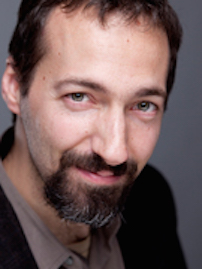
Pascal Bastien
Ph.D Histoire (Université Laval) – Doctorat Histoire (Université Paris-XIII)
Pascal Bastien a été formé par la lecture et la critique des archives judiciaires de l’époque moderne et s’est alors spécialisé dans l’histoire du droit, de la culture juridique et des pratiques judiciaires au dix-huitième siècle. Son intérêt pour les échanges interdisciplinaires, ainsi que le dialogue constant qu’il souhaite entretenir entre les différents espaces et temps historiques de la discipline, ont cependant ouvert ses perspectives de recherche vers de nombreux objets: entre rituels, images, paroles et pratiques, ses recherches portent largement sur les liens et les médiations culturelles entre les pouvoirs et les populations. Les travaux qu’il dirige se concentrent actuellement autour de trois axes principaux: l’histoire du monde judiciaire, l’histoire de Paris et l’histoire des pratiques d’écriture.
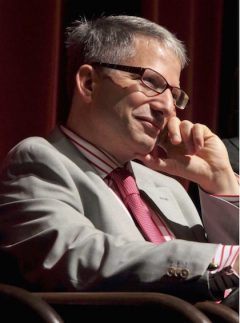
Paul Yachnin
Paul Yachnin is Tomlinson Professor of Shakespeare Studies and former Director of the Institute for the Public Life of Arts and Ideas (IPLAI) at McGill University. He directed the Making Publics (MaPs) project (2005-10) and now directs the Early Modern Conversions project. Among his publications are the books, Stage-Wrights and The Culture of Playgoing in Early Modern England (with Anthony Dawson) editions of Richard II (with Dawson) and The Tempest; and six edited books, including Making Publics in Early Modern Europe (with Bronwen Wilson) and Forms of Association (with Marlene Eberhart). His book-in-progress, Making Publics in Shakespeare’s Playhouse, is under contract with University of Edinburgh Press. His ideas and the ideas of his MaPs colleagues about the social life of art were featured on the CBC Radio IDEAS series, “The Origins of the Modern Public.” A recent area of interest is higher education practice and policy, with publications in Policy Options and University Affairs and projects involving more than 25 Canadian universities.

Peter Ricketts
Dr. Peter Ricketts began his appointment as Provost and Vice-President (Academic) at Carleton University in July 2009, and has just commenced a second five-year term following a successful review and reappointment. He is a Professor of Geography and Environmental studies and is an expert in integrated coastal and ocean management with over 30 years of experience as a researcher and instructor.
Prior to joining Carleton University, Dr. Ricketts was a Vice-President (Academic and Research) and Professor of Geography at Nipissing University, in North Bay, ON. Before that he was a Professor of Geography at the University of British Columbia Okanagan in Kelowna, BC. Dr. Ricketts also has extensive experience as a senior university administrator, having served as President of Okanagan University College (OUC) from 2004-05 and Vice-President, Academic of OUC from 2000-04. Prior to joining OUC, he was Dean of Graduate Studies at Dalhousie University (1995-2000) in Halifax, NS and was the first Director of Research at Saint Mary’s University (1989-1994), also in Halifax, NS. With over 15 years of experience as a senior academic administrator, Dr. Ricketts has served two terms as President (1998-99 and 1999-2000) and one term as Vice-President (1997-98) of the Canadian Association of Graduate Studies, and is currently Chair of CBIE’s Internationalization Leaders Network and Director of Ontario Universities International.
He has published extensively in the fields of coastal and ocean management, strategic environmental assessment, the applications of geographic information systems and information technology to support decision-making in coastal and ocean resource management, maritime boundary delineation, international coastal and ocean issues, and the management of coastal erosion. Dr. Ricketts has acted as a consultant for the Departments of Foreign Affairs, Fisheries and Oceans, and Environment of the Government of Canada and for the National Atmospheric and Oceanic Administration of the US federal government. Dr. Peter Ricketts is currently the President of the Coastal Zone Canada Association, which is Canada’s major organization for researchers, public policy practitioners, and community stakeholders in the area of coastal and ocean management.

Robert Gibbs
Robert Gibbs is Inaugural Director of the Jackman Humanities Institute and Professor of Philosophy at the University of Toronto. His work is located on the borderlines of Philosophy and Religion, specializing on the modern Jewish philosophical tradition and focusing on Law and Ethics. His two major books are: Correlations in Rosenzweig and Levinas and Why Ethics? Signs of Responsibilities. He has taught in the Philosophy departments at the University of Toronto, St. Louis University, and in the Religion Departments at Princeton University.
His current research focuses on Higher Education, and he has recently completed a book length manuscript, The University in Question: New Ideas. In it he inquires what a Research University is for and explores different models of universities by refocusing on the research capacities of students.
Past projects include Messianic Epistemology, Reason and Authority: Islamic and Jewish Legal Reasoning. He is President of the International Rosenzweig Society and served as a member of the International Advisory Board of CHCI (Consortium of Humanities Centers and Institutes), and as a member of the Humanities Initiative Steering Committee for CIFAR (Canadian Institute for Advanced Research). He is a member of the Governing Council of the Social Sciences and Humanities Research Council of Canada (SSHRC) and Chair of its Programs and Quality Committee.

Sandra den Otter
Dr. Sandra den Otter is an Associate Dean in the School of Graduate Studies at Queen’s University, Canada. She received her Doctorate in History from the University of Oxford in 1990, before coming to Queen’s University as a Post‐Doctoral Fellow in 1990. She has held fellowships at the Center for European Studies at Harvard University and at the University of Cambridge. Dr. den Otter’s research focuses on British world history with an emphasis on legal theories and legal cultures in the British imperial world. She has published this work in journals and with Oxford University Press, Princeton University Press and Cambridge University Press. As an Associate Dean, Professor den Otter oversees 20 graduate departments/programs at Queen’s University and has particular expertise in following areas: new graduate programs and credentials, international partnerships, academic and professional skills training, and graduate student mental health and well-being.